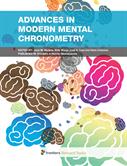Advances in Modern Mental Chronometry

Download Url(s)
http://journal.frontiersin.org/researchtopic/2046/advances-in-modern-mental-chronometryAuthor(s)
Jose M Medina
Willy Wong
Jose A Diaz
Hans Colonius
Language
EnglishAbstract
Mental chronometry encompasses all aspects of time processing in the nervous system and constitutes a standard tool in many disciplines including theoretical and experimental psychology and human neuroscience. Mental chronometry has represented a fundamental approach to elucidate the time course of many cognitive phenomena and their underlying neural circuits over more than a century. Nowadays, mental chronometry continues evolving and expanding our knowledge, and our understanding of the temporal organization of the brain in combination with different neuroscience techniques and advanced methods in mathematical analysis. In research on mental chronometry, human reaction/responses times play a central role. Together with reaction times, other topics in mental chronometry include vocal, manual and saccadic latencies, subjective time, psychological time, interval timing, time perception, internal clock, time production, time representation, time discrimination, time illusion, temporal summation, temporal integration, temporal judgment, redundant signals effect, perceptual, decision and motor time, etc. The aim of this research topic is to provide an overview of the state of the art in this field?its relevance, recent findings, current challenges, perspectives and future directions. Thus, as a result, a collection of 14 original research and opinion papers from different experts have been gathered together in a single volume.
Keywords
power laws; Decision Making; Timing and Time perception; mental chronometry; stochastic models; Simple and choice reaction time; Cognition; human performance; variability; Sensory PerceptionWebshop link
http://www.frontiersin.org/boo ...ISBN
9782889195664Publisher
Frontiers Media SAPublisher website
www.frontiersin.orgPublication date and place
2015Series
Frontiers Research Topics,Classification
Neurosciences

